Indigenous Governance Database
sovereignty
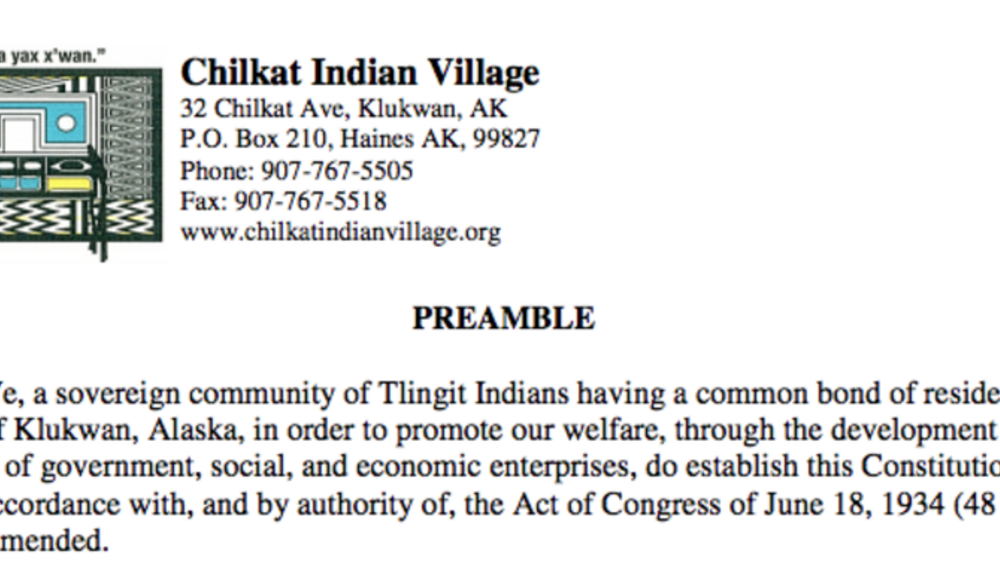
Chilkat Indian Village: Legislative Functions Excerpt
ARTICLE V — POWERS OF THE VILLAGE Section 1. The Council shall have the power: (n) To adjudicate matters of a civil and criminal nature, arising within the Tribe’s jurisdiction and to establish tribal courts if deemed necessary for that purpose. (o) To enact ordinances and take any other action…
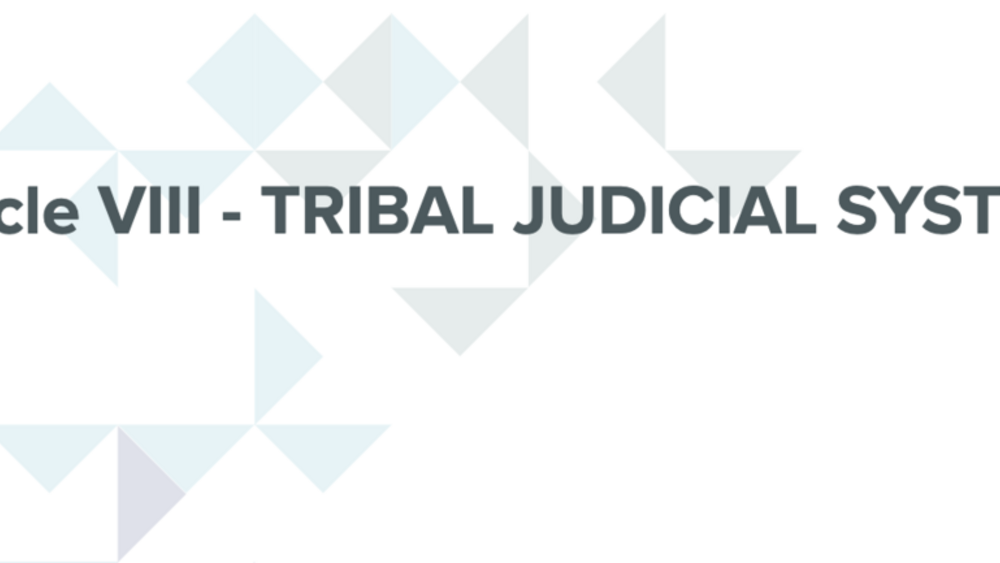
Ione Band of Miwok Indians: Judiciary Functions/Dispute Resolution Excerpt
Article VIII - TRIBAL JUDICIAL SYSTEM The judicial power ofthe Tribe shall be vested in the Tribal Council until such time as Tribal court(s) or other appropriate forums may from time to time be established by ordinance(s) for that purpose. Said ordinance(s) shall ensure the impartiality and…
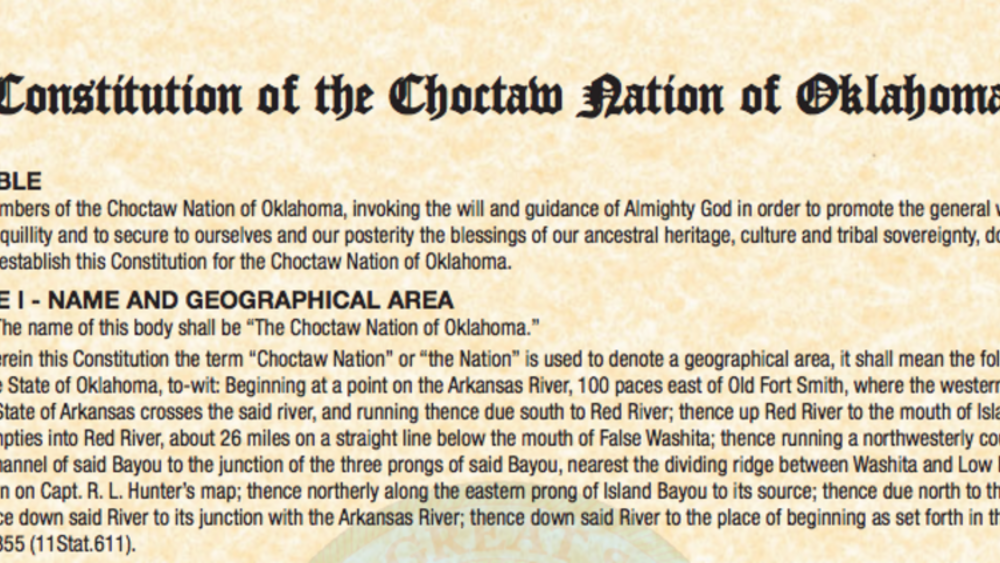
Choctaw Nation of Oklahoma: Judiciary Functions/Dispute Resolution Excerpt
ARTICLE XII - JUDICIAL DEPARTMENT Section 1. The judicial authority of the Choctaw Nation shall be vested in a Tribal Court which shall consist of three (3)-member Court appointed by the Chief with the advice and consent of the Tribal Council. One (1) such member,the presiding judge, shall be a…
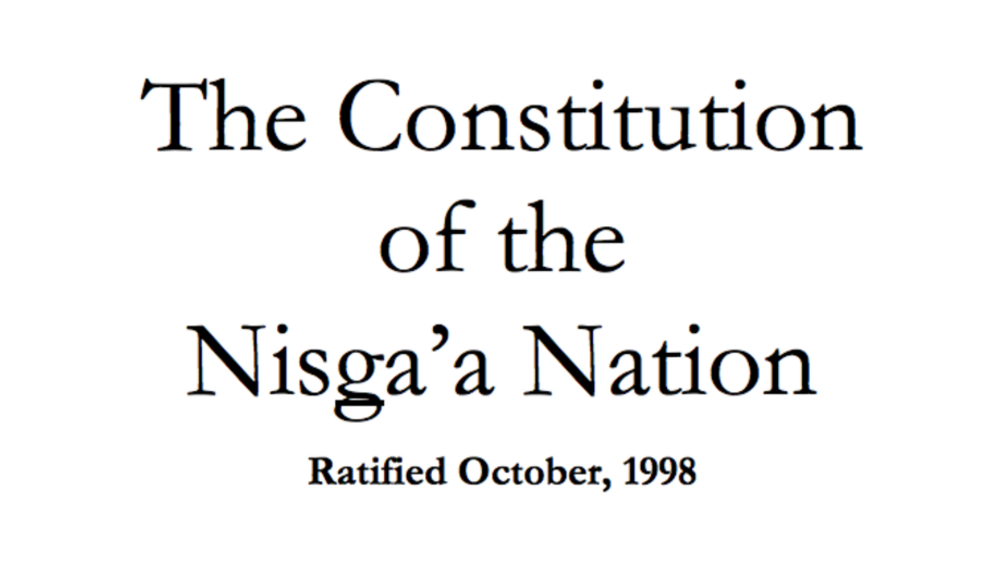
Nisga’a Nation: Judiciary Functions/Dispute Resolution Excerpt
CHAPTER 8-DISPUTE RESOLUTION 48. Principles of dispute resolution Nisga’a seek to resolve disputes based on values expressed in the Ayuuk, including: (a) preserving the unity of the Nisga’a Nation; (b) maintaining the dignity of and respect for each individual; (c) acknowledging wrongdoing,…
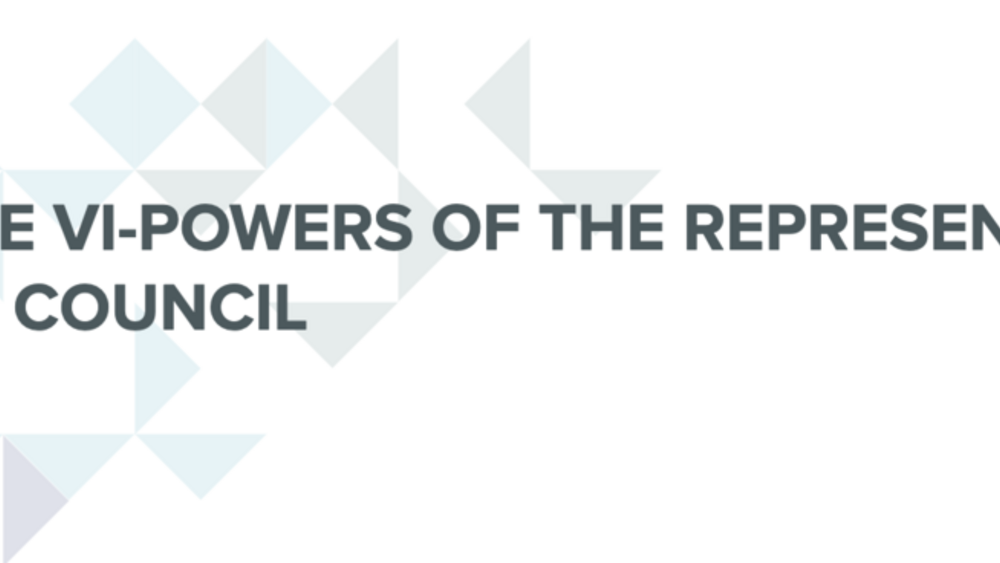
Jicarilla Apache Tribe: Judiciary Functions/Dispute Resolution Excerpt
ARTICLE VI-POWERS OF THE REPRESENTATIVE TRIBAL COUNCIL SECTION 4. Peace and Order.-The Council may make regulations, subject to review by the Secretary of the Interior, to protect the peace, safety, morals, and general welfare of the reservation, to provide a means of settling disputes, and to…
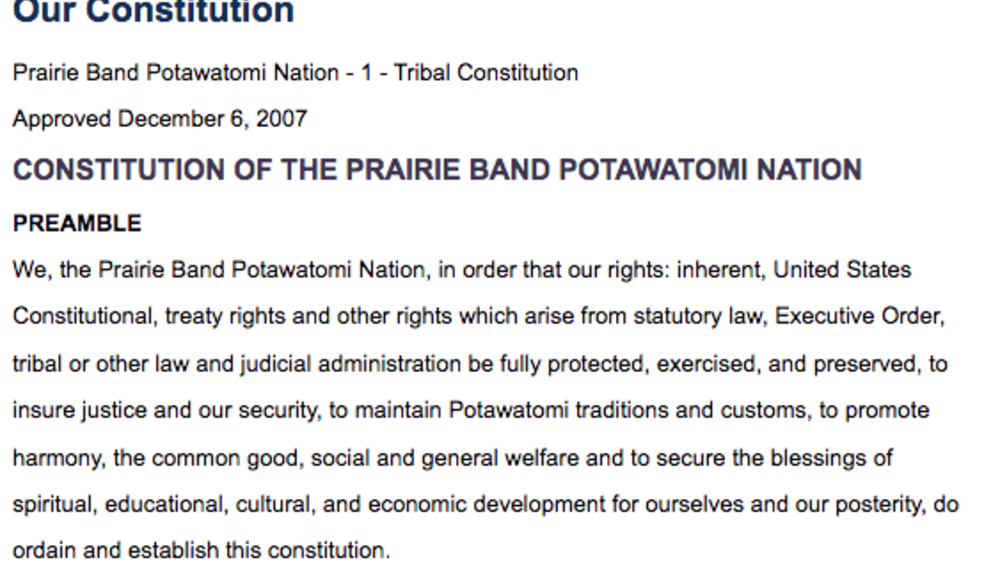
Prairie Band Potawatomi Nation: Distribution of Authority Excerpt
ARTICLE II - LAND Section 1. Recognition. We, the Prairie Band Potawatomi Nation, do not accept a diminishing of our sovereign status as a nation and of our vested or inherent rights by the act of adopting this constitution. Section 2. The Tribal Council shall establish a standing Committee vested…
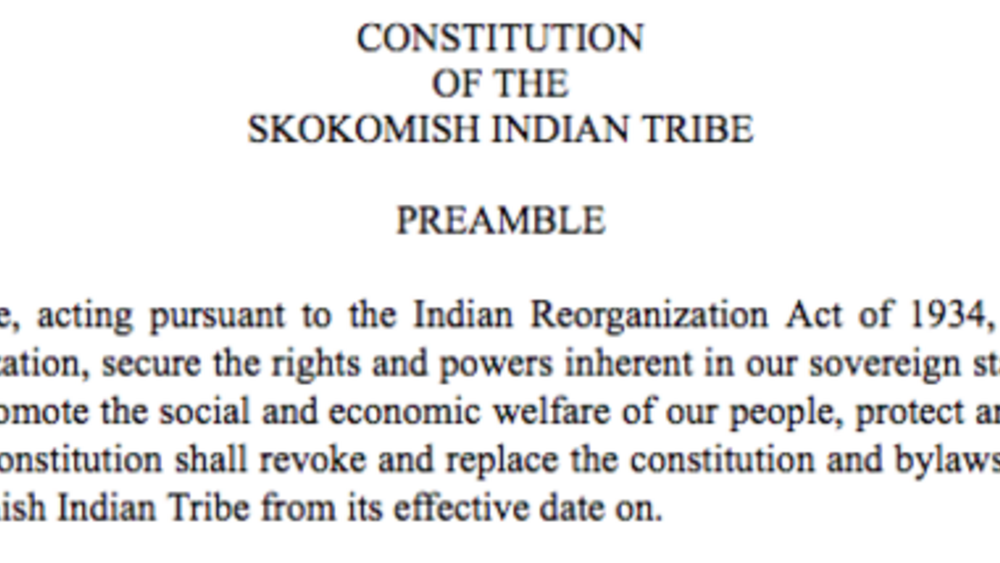
Skokomish Indian Tribe: Initiative & Referendum Excerpt
ARTICLE VIII - INITIATIVE Section 1. Right of Initiative. Voters of the Skokomish tribe shall have the right to cause a vote of the General Council on any legislation proposed by the voters and on any proposed or enacted ordinance or resolution of the Tribal Council. No later than thirty (30…
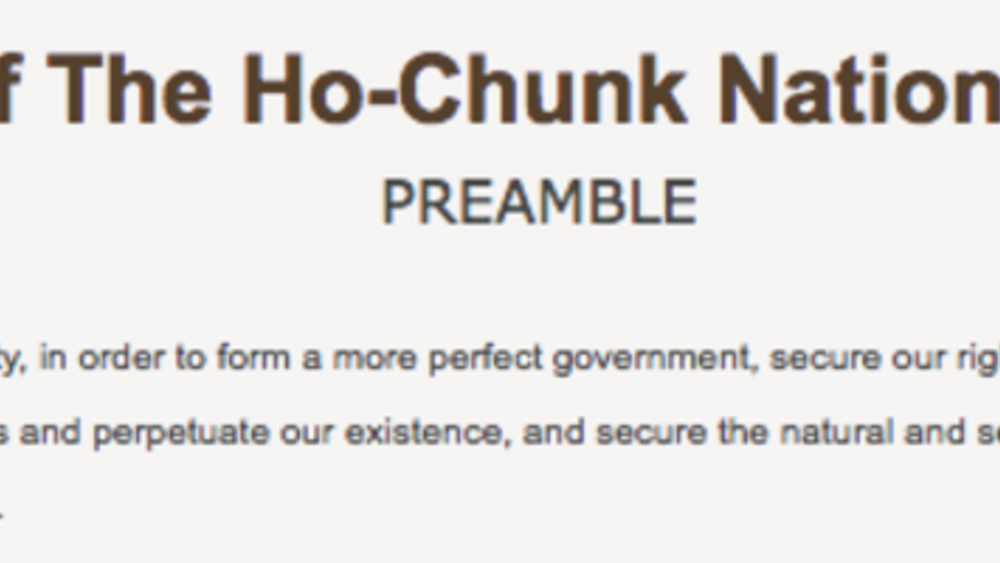
Ho-Chunk Nation: Governmental Structure Excerpt
ARTICLE III - ORGANIZATION OF THE GOVERNMENT Section 1. Sovereignty. The Ho-Chunk Nation possesses inherent sovereign powers by virtue of self-government and democracy. Section 2. Branches of Government. The government of the Ho-Chunk Nation shall be composed of four (4) branches: General Council,…
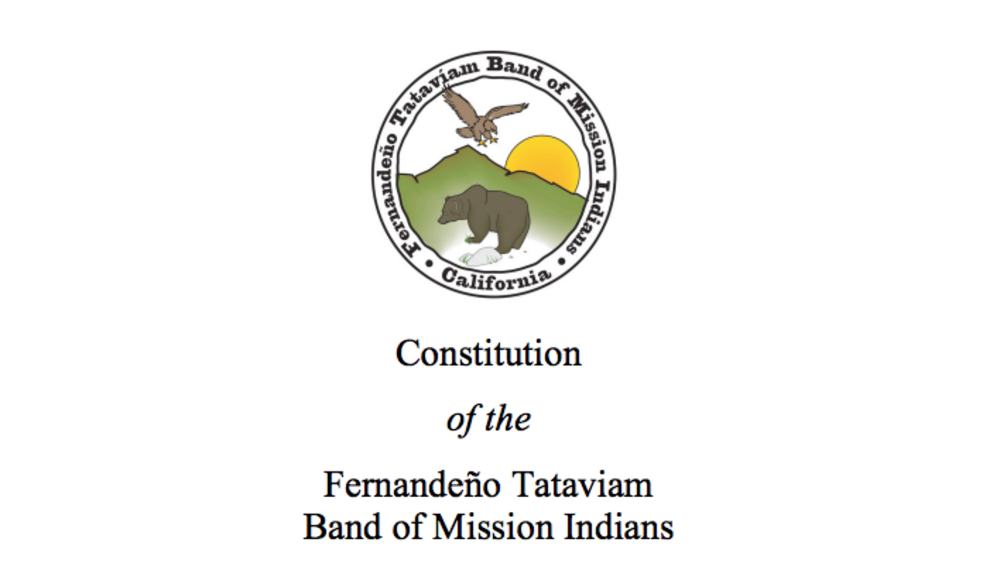
Fernandeño Tataviam Band of Mission Indians: Citizenship Excerpt
Article 7. Rights and Responsibilities of Citizens Section 1. All citizens of the Tribe are entitled to equal respect without regard to gender, age, or religion. All citizens shall enjoy equal opportunities to participate in the economic resources and activities of the Tribe, and no citizen shall…
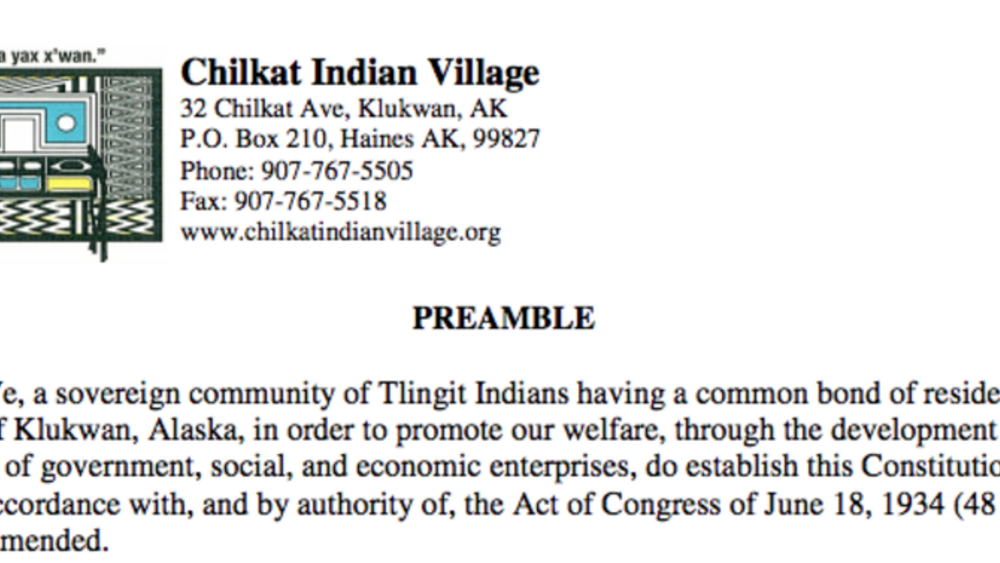
Chilkat Indian Village: Citizenship Excerpt
ARTICLE III — MEMBERSHIP Section 1. Defined: The membership of the Chilkat Indian Village shall consist of the following: (a) Original members.- All persons whose names appear on the 1940 census roll, prepared in accordance with the Instructions of the Secretary of the Interior for Organization in…
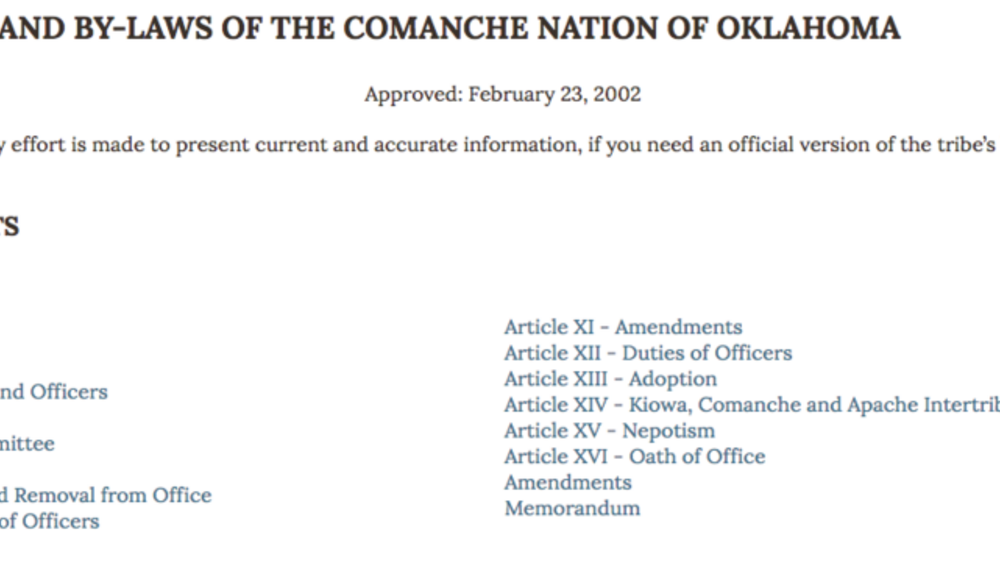
Comanche Nation: Citizenship Excerpt
ARTICLE III - MEMBERSHIP Section 1. The membership of the Comanche Nation shall consist of the following: (a) All persons, who received an allotment of land as members of the Comanche Nation under the Act of June 6, 1900 (31 Stat. 672), and subsequent Acts, shall be included as full blood members…
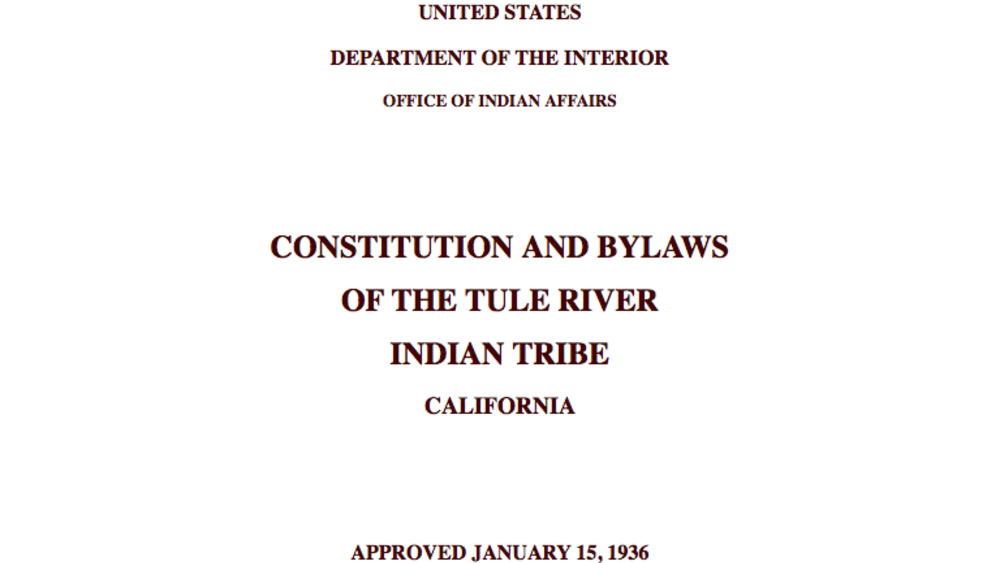
Tule River Indian Tribe: Citizenship Excerpt
ARTICLE II-MEMBERSHIP SECTION 1. The membership of the Tule River Tribe shall consist of the following: (a) All persons of Indian blood whose names a pear on the official census rolls of the Tule River Indian Reservation as of January 1, 1935; (b) All children born to any member of the Tule…
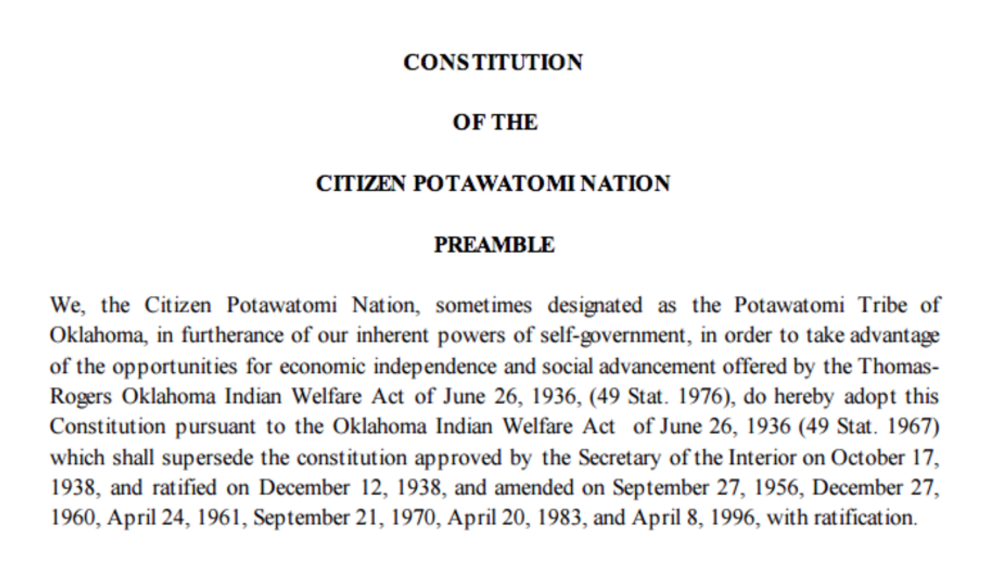
Citizen Potawatomi Nation: Citizenship Excerpt
ARTICLE 3 — MEMBERSHIP OF TRIBE Section 1. The membership of the Citizen Potawatomi Nation shall consist of the following persons: (a) All persons of Indian blood who were bona fide members of the Citizen Potawatomi Nation and who were enrolled or were entitled to be enrolled on the official census…
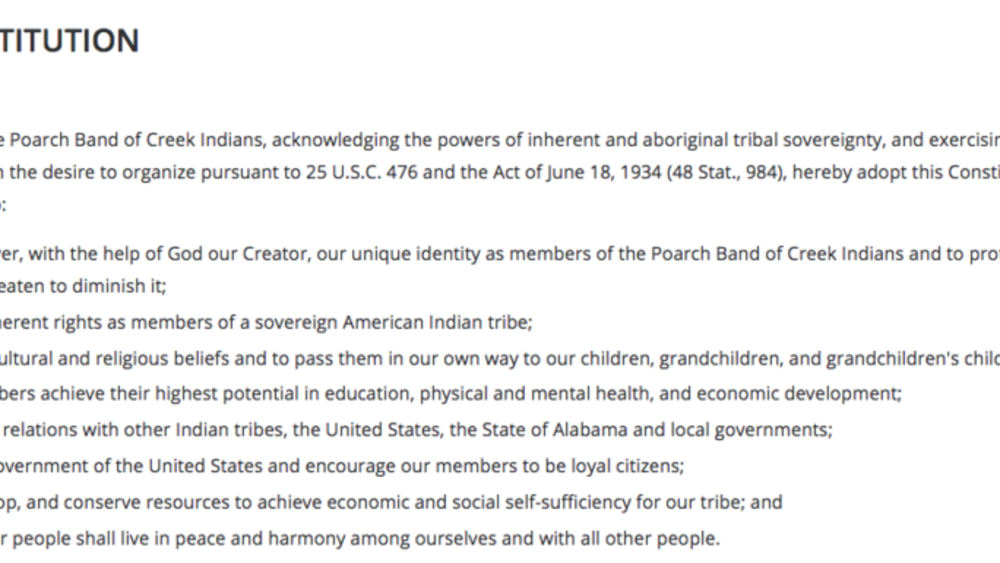
Poarch Band of Creek Indians: Preamble Excerpt
PREAMBLE We, the members of the Poarch Band of Creek Indians, acknowledging the powers of inherent and aboriginal tribal sovereignty, and exercising the right to self-determination, and with the desire to organize pursuant to 25 U.S.C. 476 and the Act of June 18, 1934 (48 Stat., 984), hereby adopt…
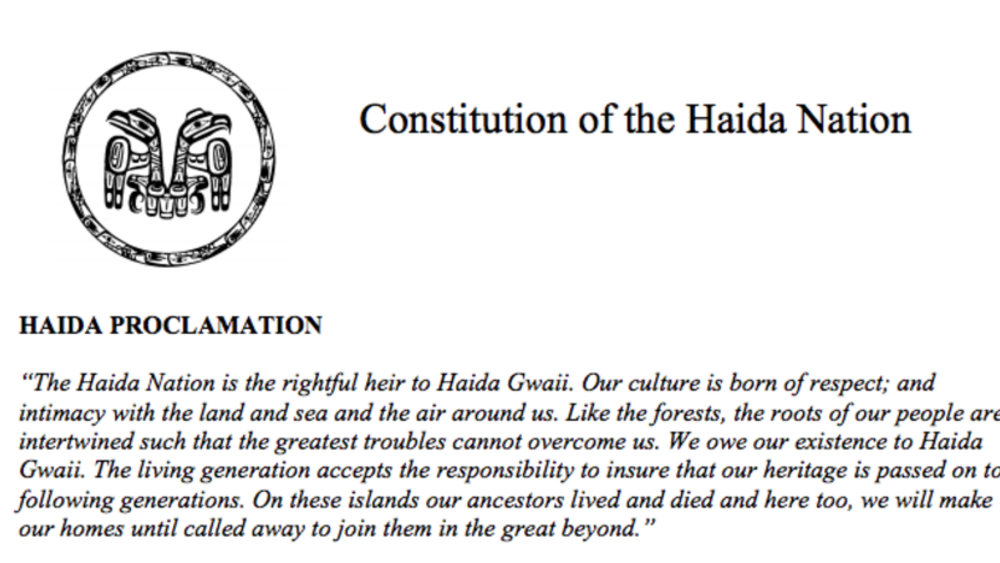
Haida Nation: Preamble Excerpt
HAIDA PROCLAMATION The Haida Nation is the rightful heir to Haida Gwaii. Our culture is born of respect; and intimacy with the land and sea and the air around us. Like the forests, the roots of our people are intertwined such that the greatest troubles cannot overcome us. We owe our existence to…
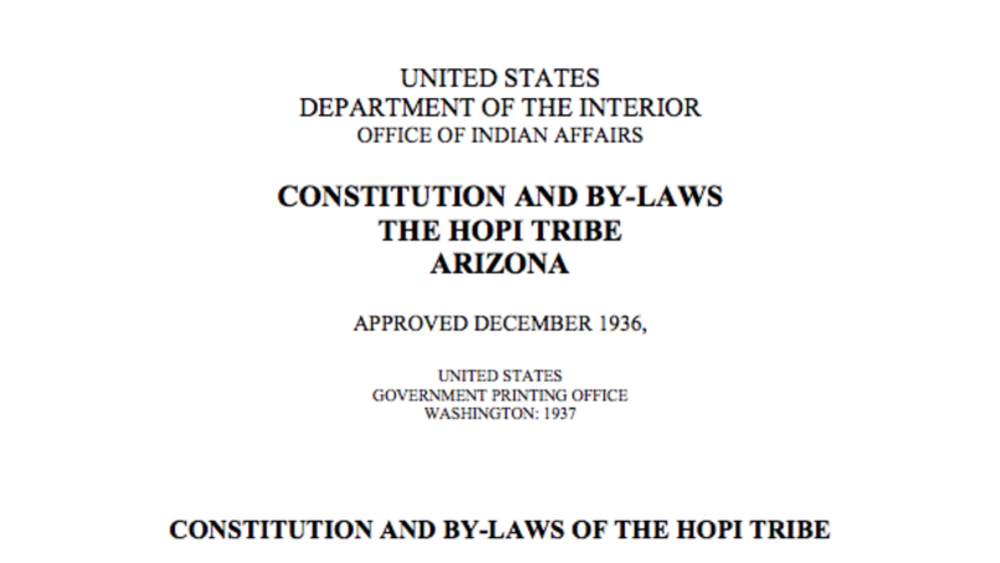
Hopi Tribe: Preamble Excerpt
Preamble: This Constitution, to be known as the Constitution and By-laws of the Hopi Tribe, is adopted by the self-governing Hopi and Tewa Villages of Arizona to provide a way of working together for peace and agreement between the villages, and of preserving the good things of Hopi life, and to…
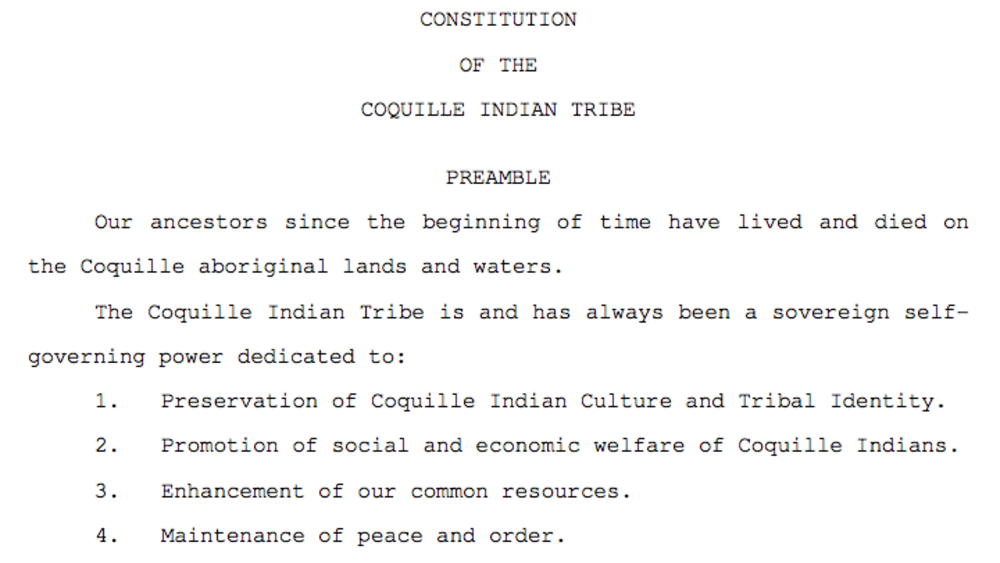
Coquille Indian Tribe: Preamble Excerpt
Preamble: Our ancestors since the beginning of time have lived and died on the Coquille aboriginal lands and waters. The Coquille Indian Tribe is and has always been a sovereign selfgoverning power dedicated to: 1. Preservation of Coquille Indian Culture and Tribal Identity. 2.…
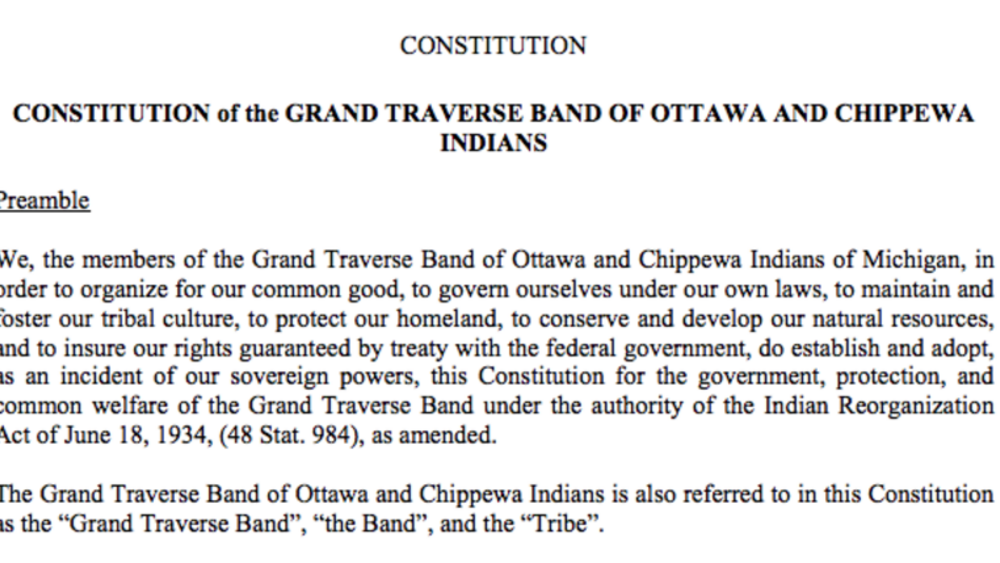
Grand Traverse Band of Ottawa and Chippewa Indians: Preamble Excerpt
Preamble: We, the members of the Grand Traverse Band of Ottawa and Chippewa Indians of Michigan, in order to organize for our common good, to govern ourselves under our own laws, to maintain and foster our tribal culture, to protect our homeland, to conserve and develop our natural…
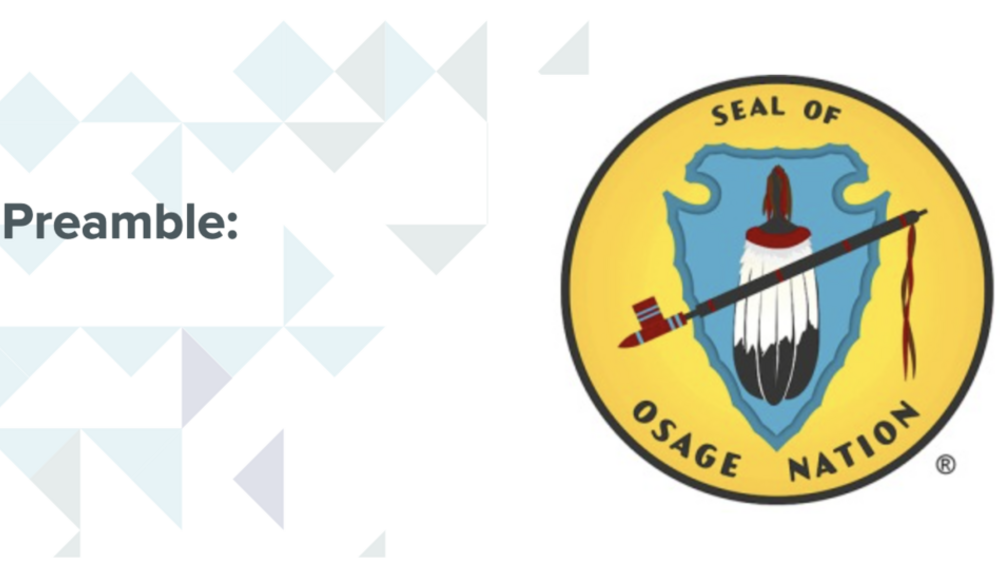
Osage Nation: Preamble Excerpt
Preamble: We the W/\ ZA ZOK (Wah-zha-zhe), known as the Osage People, having formed as Clans in the far distant past, have been a People and as a People have walked this earth and enjoyed the blessings of Wah-kon-tah for more centuries than we truly know. Having resolved to live in harmony, we…
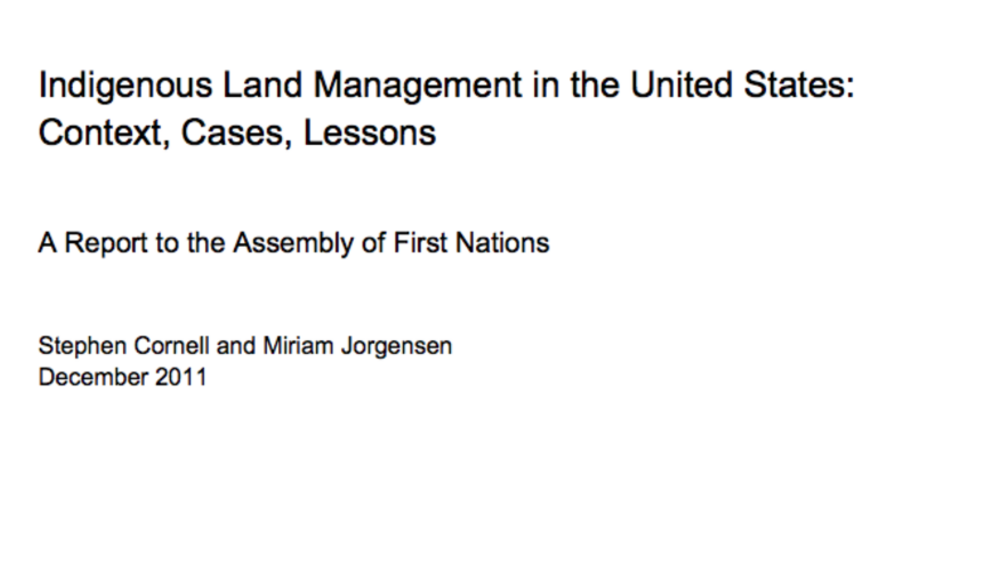
Indigenous Land Management in the United States: Context, Cases, Lessons
The Assembly of First Nations (AFN) is seeking ways to support First Nations’ economic development. Among its concerns are the status and management of First Nations’ lands. The Indian Act, bureaucratic processes, the capacities of First Nations themselves, and other factors currently limit the…
Pagination
- First page
- …
- 4
- 5
- 6
- …
- Last page
